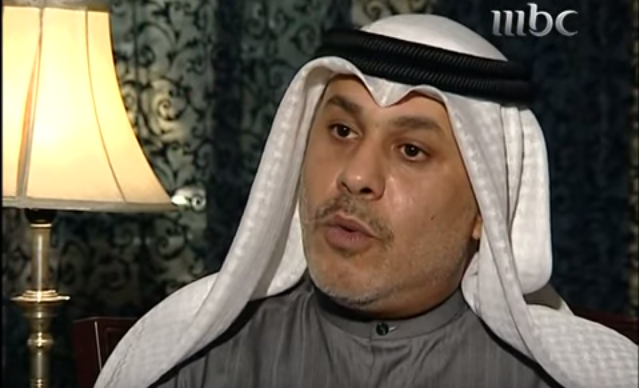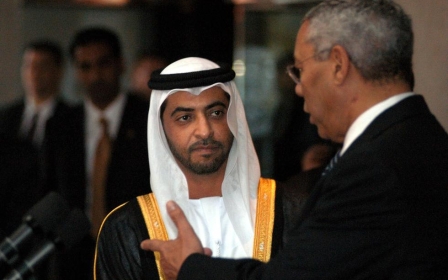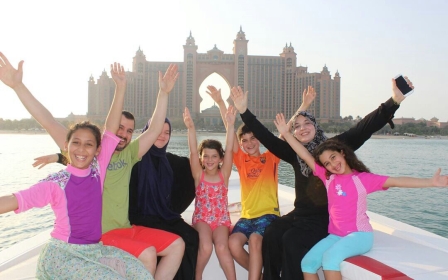UAE arrest prominent economist and pro-democracy activist

The United Arab Emirates on Tuesday arrested a prominent Emirati economist who has previously supported calls for democratic reform in the oil-rich Gulf state.
State security arrested Nasser bin Ghaith at 2pm local time (1000 GMT) at his work in Abu Dhabi, activists told Middle East Eye on condition of anonymity.
He was taken to Dubai where around 13 plain-clothed security service agents - 3 from Dubai, the rest from Abu Dhabi - searched his home for over four and a half hours. At 8.30pm (1630 GMT) he was taken to an unknown location by security services, where he remained as of Wednesday morning.
The activists said Ghaith accused security services of putting USB sticks among his belongings during the search.
"How do I know that you did not plant something with the items you have seized?" Ghaith asked, according to the activists. "The memory sticks you have put in among my things are not mine."
“I’m boycotting all these procedures, the interrogation, the prosecution, and the trial," he added.
Ghaith is an Emirati economist who has lectured at the Abu Dhabi campus of the Paris-based Sorbonne University, which declined to comment on his detention to Middle East Eye. He also works as an economic and legal consultant to the UAE army.
Authorities in the UAE have not commented on Ghaith’s arrest and his family have not been told why he is being detained.
An Emirati activist, who asked to remain anonymous, said they were concerned about Ghaith's "physical and psychological" well-being, due to previous accusations that state security have tortured detainees and the fact that he takes medication for high blood pressure. UAE authorities have repeatedly denied all reports of torture at their detention sites.
The activist said that they believed Ghaith may have been arrested because of tweets criticising Egyptian authorities on the recent anniversary of the Rabaa massacre.
According to Human Rights Watch, more than 1,000 people were killed in Cairo on 14 August 2013 when Egyptian security forces attacked a sit-in at the Rabaa al-Adawiya Square, where protesters had set up camp to oppose a military ousting Egypt’s first democratically elected president Mohammed Morsi.
Translation: On this day, worshippers were murdered and a mosque was burnt down by the Mongols of this age…It happened in Egypt
Translation: My critical stance towards the regime in Egypt does not mean I do not want the country to progress and develop. On the contrary, it is because the regime is short-lived, and Egypt will remain. Just to clarify
Ghaith was imprisoned between April and November 2011 on charges of “insulting” UAE President Khalifa bin Zayed al-Nahyan, Vice President and ruler of Dubai Mohammed bin Rashid al-Maktoum, and Crown Prince Mohammed bin Zayed al-Nahyan.
He was jailed along with four other activists, who were collectively known as the UAE 5, for signing an online petition that called for the country’s Federal National Council to be wholly elected by universal suffrage and to have full legislative powers.
The UAE 5 were designated as prisoners of conscience by Amnesty International and were later pardoned by President Khalifa, who is also Emir of Abu Dhabi.
In 2011, half of the FNC’s 40 members were elected by 129,274 Emiratis, or around 12 percent of the national population – over 20 times more people than could vote in the 2006 elections when the vote was first held. It is a consultative body that has the power to draft and debate legislation, however, the members hold no legislative powers.
Middle East Eye propose une couverture et une analyse indépendantes et incomparables du Moyen-Orient, de l’Afrique du Nord et d’autres régions du monde. Pour en savoir plus sur la reprise de ce contenu et les frais qui s’appliquent, veuillez remplir ce formulaire [en anglais]. Pour en savoir plus sur MEE, cliquez ici [en anglais].




